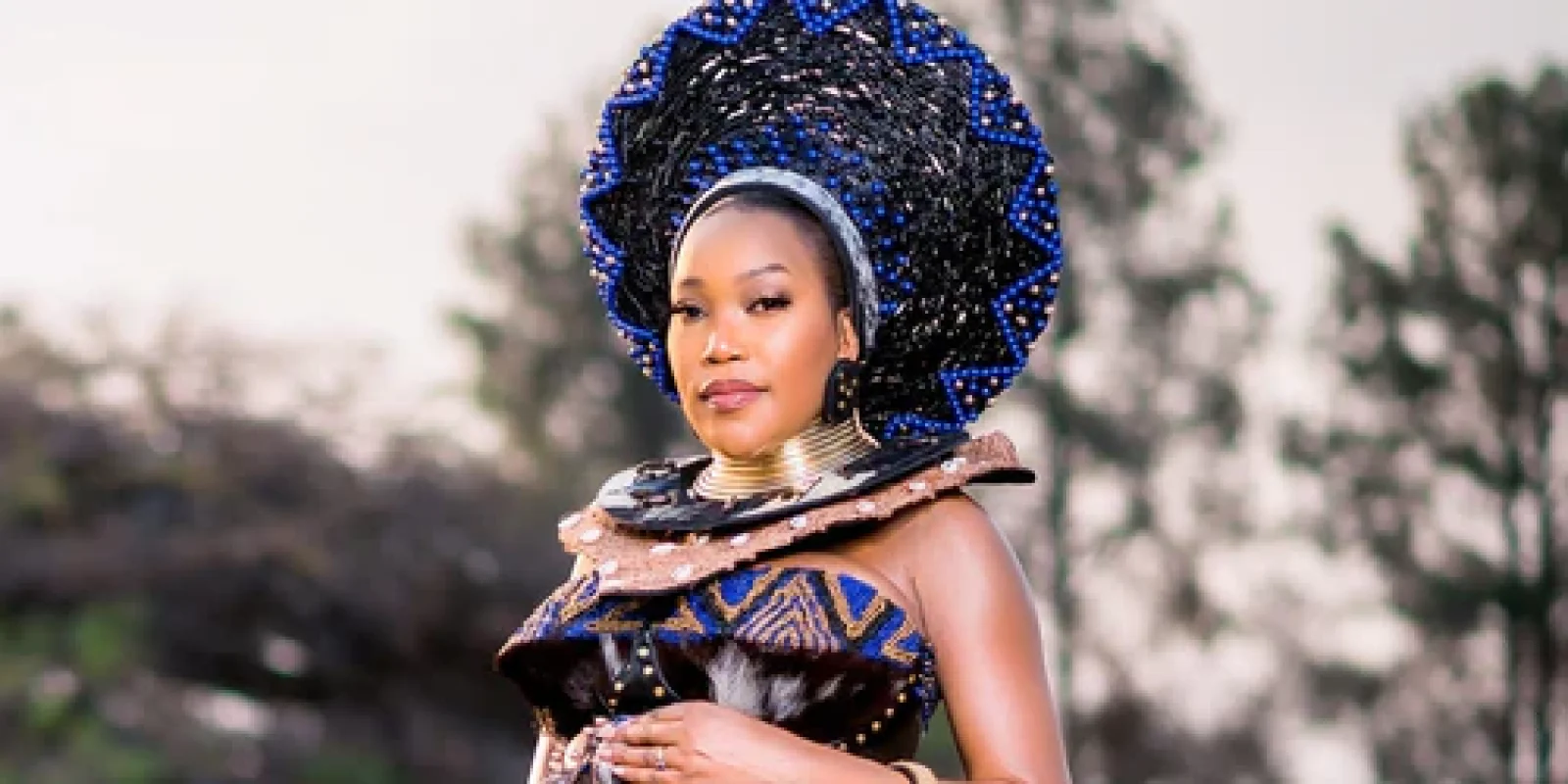admin@natural About Going Natural, Nappy News, Contributors, About the Pageant, Going Natural in the Press, Publications, Site Help & Info, America's Next Natural Model maternity shoot, Zana Kay, Zimbabwean culture
I wanted a maternity outfit that celebrates my culture and tells the authentic story of my roots, as should African Fashion. Pregnancy is a spiritual journey; for me, it was an important time to reflect on my identity, who I am, who I am becoming, where I am coming from, and where I am headed. I made my maternity apron, Ingcayo, predominantly from goat and cow hides. In my culture, the in-laws gift a goat to a pregnant woman, makoti, to honor the pregnancy and the child.
So naturally, the goat hide was the canvas on which I wanted to tell my story.
In old custom, the goat was slaughtered, and the skin was used to make a maternity dress, “ingcayo,” an apron to cover the pregnant woman’s belly.
After the baby was born, the Ingcayo was repurposed as a baby carrier or a warm blanket. In my case, the same cowhide I used for the maternity outfit was also used to make the baby carrier which I will show soon.

The intricate gold, blue, brown, and black beading tells my story. In Nguni culture, the diamond shape symbolises my marital status (married). The upward-pointing triangle represents masculine elements, revealing I am carrying a male child. The two other cowhide triangles represent the other 2 important male figures in my life. These are also connected with a chain of beads to symbolise their strong relationship.

The circle represents Sunrise (to shine). A new beginning. A shining bright light piercing through the dark sky and a bright future. Every mother’s vision is for her child to bring light, ukukhanya lezibusiso.
The gold represents abundance, wealth, and royalty.
represents abundance, wealth, and royalty.
Black denotes strength, power, and spirituality.
denotes strength, power, and spirituality.
The blue  represents peace, faithfulness, and fidelity. I have used it to also represent the ‘Water Tribe’ … the Lozi people of Barotseland, where my husband , Lewanika, comes from. The Lozi, or Barotse, are a Southern African ethnic group who speak Lozi or Silozi, a Sotho–Tswana language, who settled along the Zambezi flood plains.
represents peace, faithfulness, and fidelity. I have used it to also represent the ‘Water Tribe’ … the Lozi people of Barotseland, where my husband , Lewanika, comes from. The Lozi, or Barotse, are a Southern African ethnic group who speak Lozi or Silozi, a Sotho–Tswana language, who settled along the Zambezi flood plains.
I intricately hand-beaded the goat hide, cowhide, and leather to tell my story as a modern Ndebele woman and honour the beautiful journey of my pregnancy.
Yet still words or symbols cannot fully express this amazing journey and my gratitude to God All I can sing is… “see what the Lord has done”
All I can sing is… “see what the Lord has done” 


